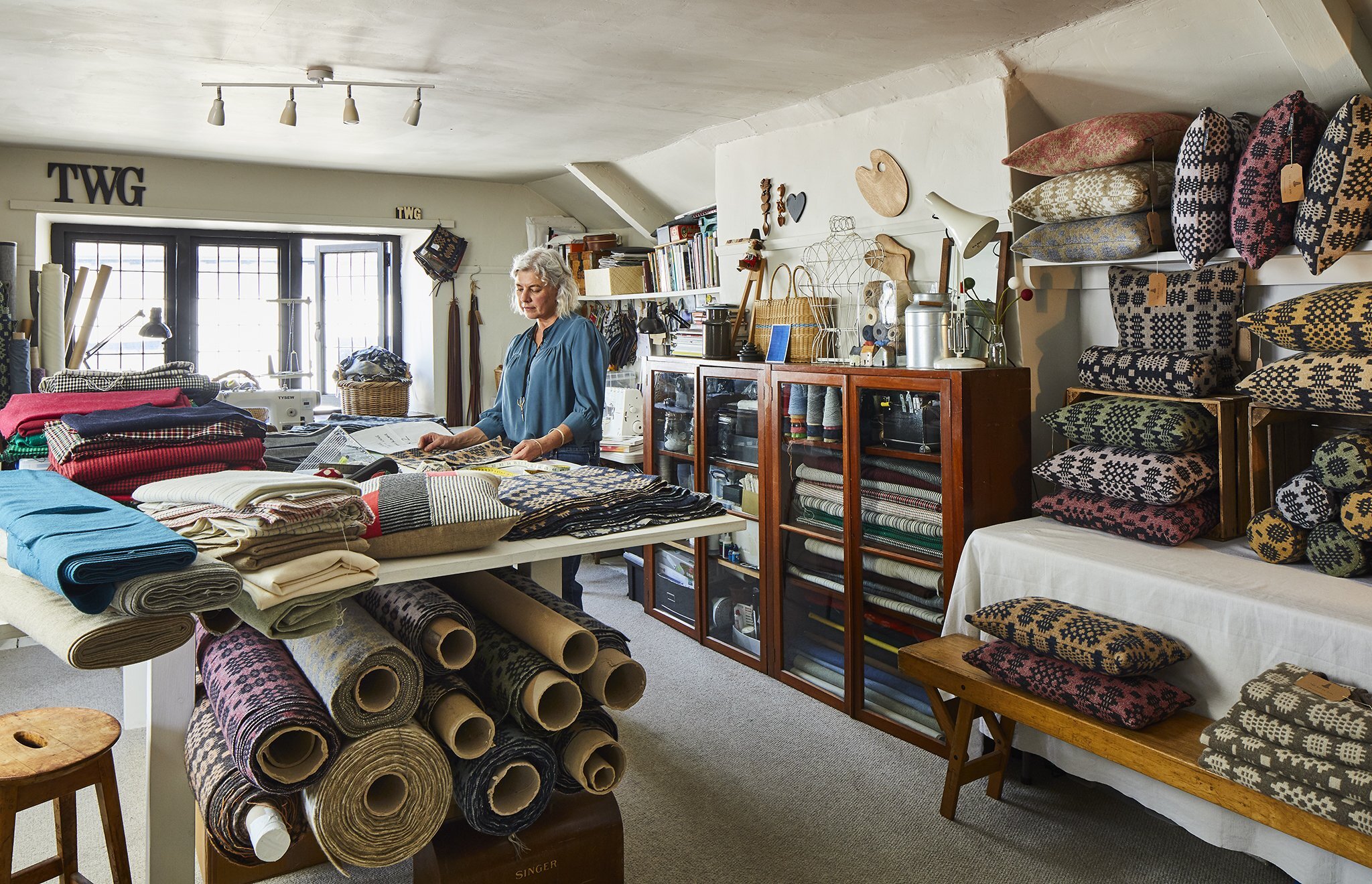Julie aka The Welsh Girl
After 25 years in the world of fashion and production in London, Julie returned to her homeland full time in 2015 to realise a long held dream – to pursue her love and passion for textiles, design and making.
Having grown up surrounded by heritage Welsh weaves and saddened by the demise of the industry from when she was a child to the present day, Julie has a great nostalgic yearning to celebrate these amazing fabrics and bring them back to life in a form other than the iconic Welsh blanket.
First, tell us a bit about yourself and what your job is.
I’m Julie - aka The Welsh Girl - and I work with the traditional textiles of Wales in a contemporary way. I design and make a small range of functional and beautiful items for the self and the home, including our signature poncho (which is a new take on heirloom), bags, scarves, accessories and cushions. I also do collaborations and commissions. The cloth is woven exclusively for TWG in my own unique colours and in limited edition runs. My studio and shop is in the heart of Hay on Wye. I also have an online shop and sell - in normal times - via curated spaces, pop ups and small festivals.
The ethos that I live by is ‘buy less, buy better.’
What things do you make that are British?
Everything.
Is Made in Britain an important part of your marketing and brand message?
Yes, very much so. This, along with the preservation of old techniques. Why change something that isn’t broken?
My entire message sits around my pieces being handmade in Wales. My wish is that we could sort out the wool issue in the UK and have more British or Welsh wool.
This is something that I’m really passionate about and I hope something that will be fully addressed soon.
Do you find that your customers understand why British goods cost more than many others?
(Do you need to explain this, or do they understand it when they come to you?)
Anyone who buys my products understands and appreciates what I do, but that’s not always the case for people who come into the shop to browse.
Hay is a tourist town, so we get people from all walks of life. Some people don't understand the ethos and so they don’t buy the products. You can’t be chasing something cheap and still understand quality, process, craftsmanship and so forth.
Sometimes, I do get people that come in and love what I do and love the ethos, but they don’t have the money to buy the product. That’s the bit I find hard. I do think that increasingly, attitudes are changing but we do need to keep educating people (from an early age) on the idea of ‘buy well once, buy less better’.
Do you feel that there’s a growth in interest in this type of provenance?
Absolutely. There is a lot of interest in my wee brand and I’ve noticed a change in people’s attitudes too since I launched TWG 6 years ago.
I have a lot of people come through my door who just want to ask a million questions. I’m never sure if they are researching for themselves or are genuinely interested, but I guess it’s a combination of both.
What British goods do you use every day?
Of course I use my own products, particularly the poncho and bag and then the Coler Cwtch in the colder months. I’m also partial to ceramics, and the pieces that I use daily are crafted by different makers across the UK.
At home, I use my own cushions, too. Food is important to me and on the whole, it’s grown, reared or made locally. I’m conscious about all of my purchases, whether it’s for a gift or for me, and I always want to buy pieces that are made in the UK.
What British-made goods would you most like to own/do you have your eye on?
I’m pretty satisfied with what I have, but if I did have more disposable income I would certainly buy more Margaret Howell clothes and a new British-made electric bike.
What’s your favourite British food?
Oooh for me you can’t beat a good Sunday roast…. but it has to have good quality meat and vegetables.
